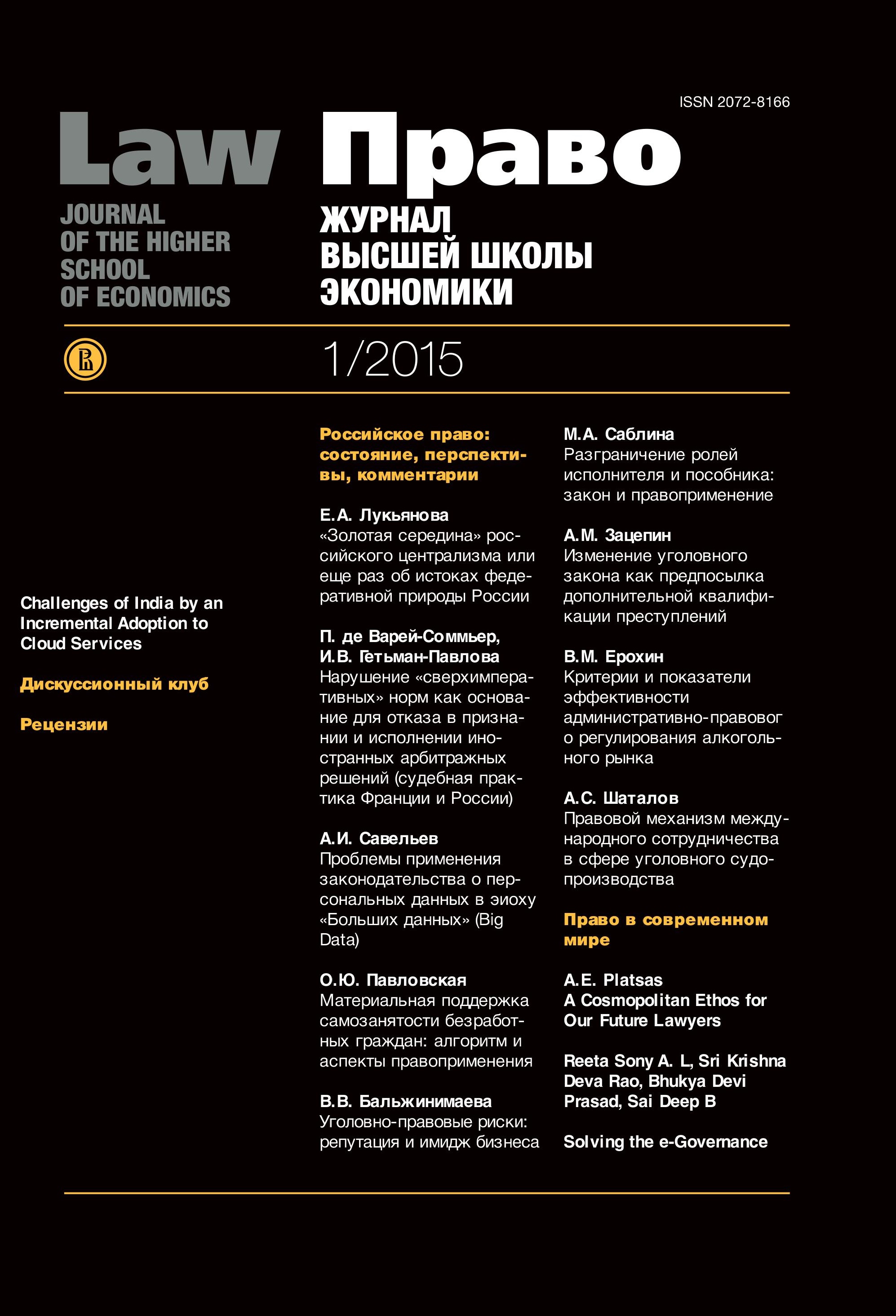The Issues of Implementing Legislation on Personal Data in the Era of Big Data
Abstract
This paper analyses the impact of Big Data technologies on data protection legislation, which represents one of the main legal outposts of privacy in digital environment. The paper describes the origin of what is currently called Big Data, its definition and examples of its application in various spheres. The main focus of the paper is on the analysis of compatibility of Big Data technologies with the core principles of data protection legislation. Based on the analysis, the author comes to a conclusion that such principles as purpose limitation, data minimization; informed consent as a main basis for processing personal data are substantially eroded by Big Data. Purpose limitation and data minimization are at odds with the concept of data reuse, which underpins the philosophy of the Big Data age. Informed consent is impossible in the situations where a specific goal of data processing cannot be provided, and it cannot be provided due to unpredictable nature of potential data uses of in Big Data age: to limit processing
data by specific purposes means rejection of the benefits of Big Data. In addition, the point is made that contrary to the popular view, anonimity of personal data is not an effective solution of existing problems with personal data in Big data era, due to widely available opportunities for de-anonymization provided by cheap computing power and a vast amount of information currently available on the Internet. The paper has a purpose of highlighting the problems in data protection legislation and initiating discussions. It is expected that possible solutions to them will be a subject of subsequent papers.Alexander Savelyev. The Issues of Implementing Legislation on Personal Data in the Era of Big Data. Р. 43–66





